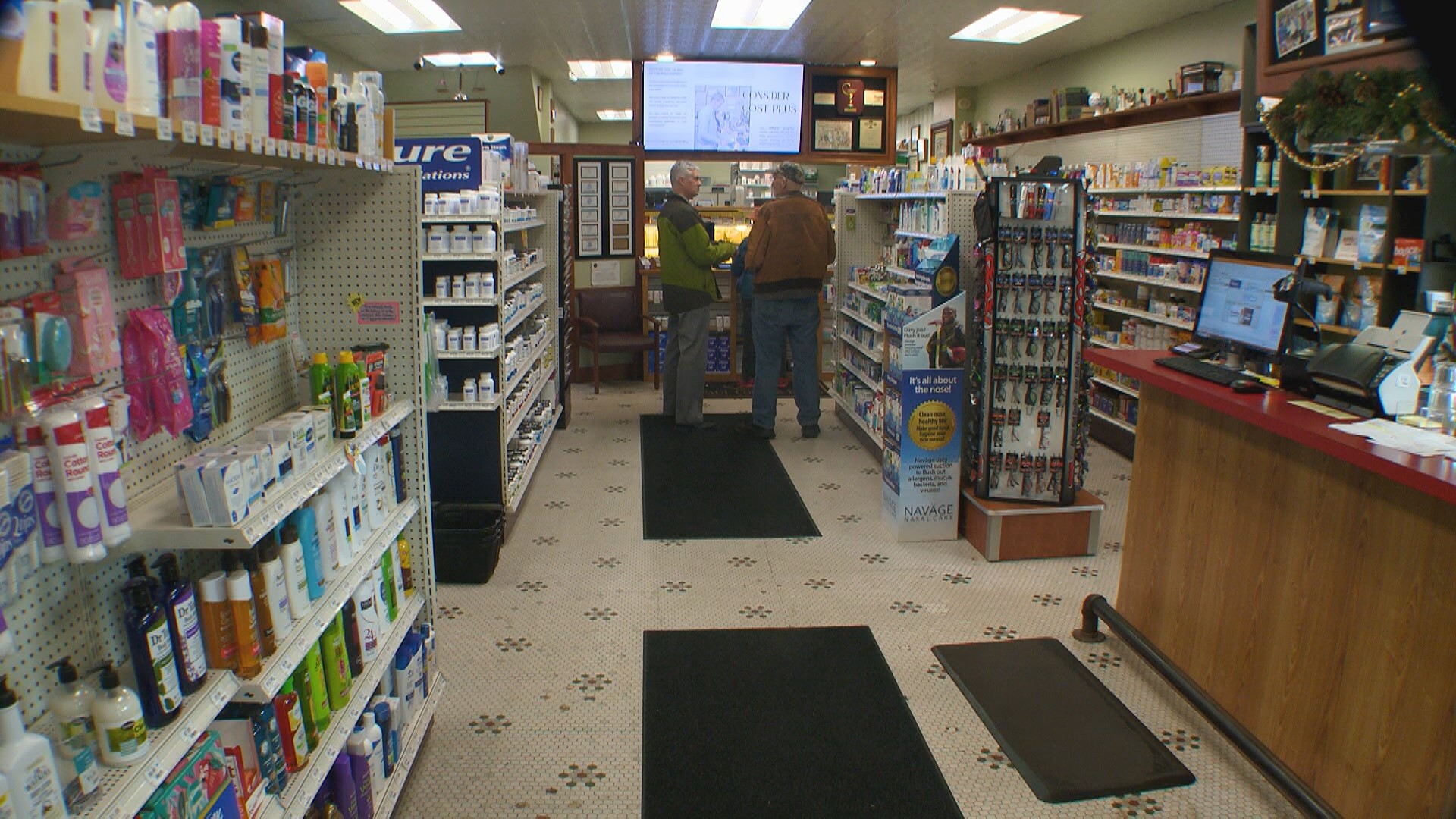ST PAUL, Minn. — Last year alone, 24 independent pharmacies closed across Minnesota and more are on the brink this year if something doesn't change, according to experts in the industry.
Some lawmakers are now trying to slow that down to maintain access to health care.
They're now backing several new bills, including one that would allow pharmacists to continue giving vaccinations, like to combat COVID-19. Another would increase reimbursement rates as drug store owners say they lose money filling prescriptions.
Several pharmacy advocates and those lawmakers spoke out at a press conference on Tuesday, including Rep. Kristin Bahner (DFL) District 37B, who said, "They need to be financially stable and they need to be in businesses where the economic model works, and currently in some forms it does not."
The trend is leading to pharmacy deserts in both the metro and rural areas.
"If something doesn't change soon, we could literally be down to no pharmacies," said John Hoeschen, owner of St. Paul Corner Drug, which first opened its doors off Snelling Avenue in 1922.
Hoeschen says his team fills about 7,000 prescriptions every month and still gives out vaccinations, too. He's one of about 110 nonchain pharmacies left across the state when, at its peak, there were about 500.
"I’m bringing home enough to keep the door open, but I have to work 65 hours a week to do that," said Hoeschen. "That shouldn’t be."
Hoeschen says the fallout goes back decades, coming to a head with recent issues like staffing shortages and inflation as the economics of the industry unravels.
"It's the pharmacy benefit managers who have done nothing but drive drug prices up, and so we're constantly trying to chase them trying to gain the system," said Hoeschen.
Consider pharmacy benefit managers as third-party administrators that determine access to drugs; how much they cost and what pharmacies are paid, sometimes cents on the dollar.
"It's a ton of money for them and we're just one of the pawns in their game," said Hoeschen.
Hoeschen says playing that game is tiring — putting a stop to it is nearly impossible.
"It's a system where when regulation is tried, but as soon as that ink dried on the paper, they had already figured out 17 different loopholes to bypass it," said Hoeschen.
Hoeschen is helping to back those new pharmacy bills, saying he has to turn to the legislature to force change so that he can continue serving customers.
"It's what we do," said Hoeschen. "We’re not about to throw in the towel on a relationship that we built over decades with a lot of these people because somebody decides we should."
To stay afloat, some pharmacies are getting creative - from dispensing only generic drug brands to managing medications for senior patients themselves to find the best deal.
Hoeschen also started offering self-pay options to customers to essentially bypass insurance companies and pay with cash instead.
As for those bills, there are several legislative hurdles yet, with another deadline coming up April 19.
Watch more local news:
Watch the latest local news from the Twin Cities and across Minnesota in our YouTube playlist:

